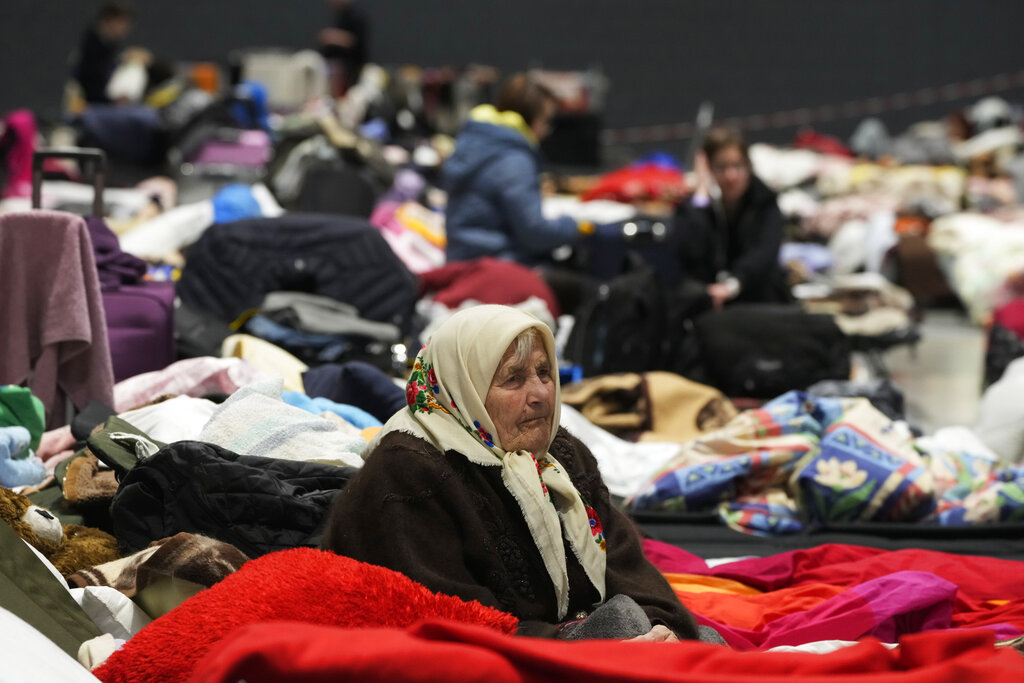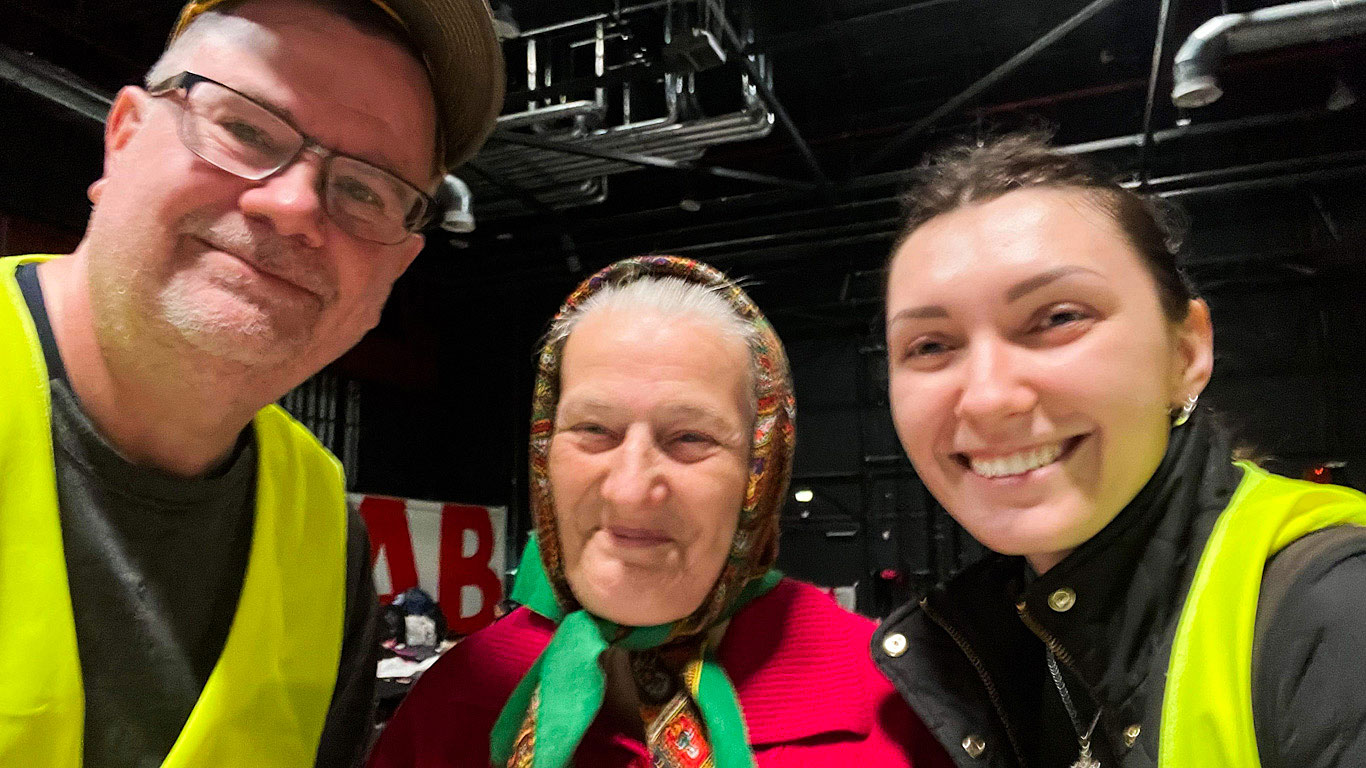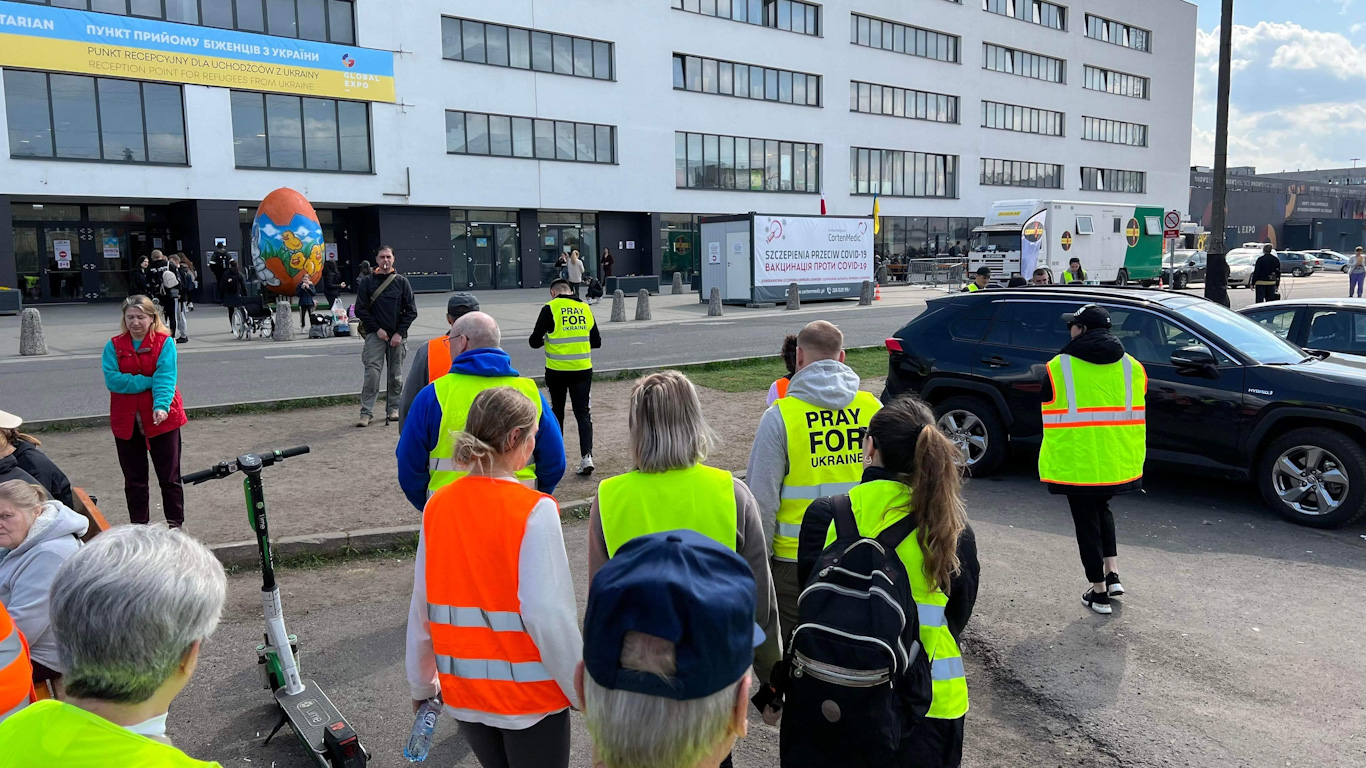“Being Ukrainian and seeing the injustice that was happening, it just broke my heart. My heart still isn’t settled, knowing everything that is going on, knowing all these innocent people that – one day they’re living their normal lives – and the next day everything that they know and are familiar with is just taken away.” So when an SBC opportunity to travel to a Ukrainian refugee center in Poland was made available, Victoria Kolosey said, “It was just kind of a no-brainer,” a gift from God.
Victoria’s home church in Baltimore, Kingsville Baptist Church, has a large number of members of Slavic descent, many from the former Soviet Union and Ukraine. “We are very true to our culture. We love our culture. So when everything happened, we didn’t think about it, we had to do something, we had to help.” The church is very active in financially assisting refugees and plans to support those who come “to start life in America.”
Arriving at a major refugee center in Warsaw, Poland, Victoria noticed something that hadn’t been reported much in the media. Some of the refugees who had made it to safety across the border were also returning to Ukraine and then back to Poland now and then, despite the risks, to check on family members who remained. “If anything meant the most, it was family.”
And “a lot of refugees were just kind of hopeful that they’d be able to return home and stay with their families and not have to start a new life in other countries.”
The Russian invasion has created millions of refugees and displaced families. And the war is causing extensive trauma.
“There was one woman that we had talked to had come out of Bucha, and the story she told…she lived in the basement of her own house for weeks and when they left they were kind of scared that they were going to be under fire from the Russian soldiers. So a lot of these families, they left as quickly as they could. There was no time to even think or comprehend. They grabbed whatever they had, pets, clothes, minimal money and they just left” hoping to make it to safety.
It was “just kind of crazy to see how many mothers and children there are – and then also, elderly. And it was just incredibly sad to see everybody escape from their homes and not knowing what to do.”

What did Victoria do to encourage and comfort the refugees she met? “Honestly, my approach to this was just to meet them where they were. I could never begin to try to understand what they went through, to understand the terror and the fear that they had in them.” In what was often a ministry of presence, “I just let them talk. And a lot of times I found that I was silent because they had so much on their hearts, there was so much in their souls just to say, somebody needed just to cry with, just to sit there and pray and give them encouragement.”
Victoria is American-born. Her mother is Ukrainian, her father is Belarusian, and she grew up speaking some Russian, which came in handy on her mission as Russian is a prominent language in parts of Ukraine.
One thing really stood out to Victoria. “So many of them are just so hopeful…that what is right will be right and it’ll just happen that way.” Much of the hope comes through faith, “they did have hope that God would show his way through all of this." She also noted, “there’s such a lack of anger towards the situation,” which Victoria and those she traveled with found very inspiring. Many refugees were learning that the only thing they could count on for certain was God, “somebody that is stable, that is always there…and that’s God… they knew that God wouldn’t fail them.”
We asked Victoria a theoretical question. If she had 10 minutes for a face-to-face meeting with Vladimir Putin, what would she tell him? You’ll hear her bold, passionate, from-the-heart response in our complete interview podcast just below.



